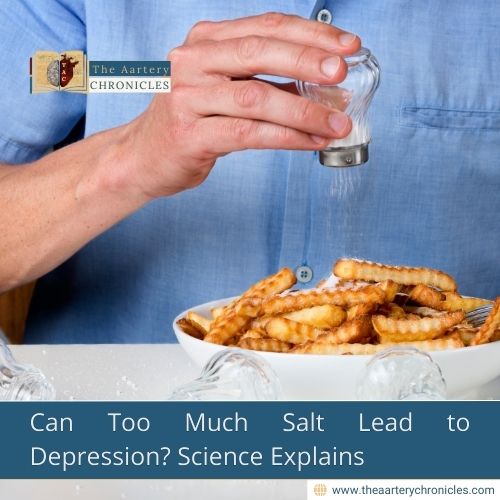

Can Too Much Salt Make You Depressed? Science Says Yes
Summary: A groundbreaking study in The Journal of Immunology reveals a surprising link between high salt intake and depression. Researchers found that a high-salt diet (HSD) triggers the production of IL-17A, a protein linked to depression, in mice. The study also highlights the role of immune cells in producing IL-17A, adding to growing concerns about the impact of excessive salt consumption on mental health.
The Hidden Link Between Salt and Mental Health
Did you know that your daily salt intake could be affecting your mood? A recent study published in The Journal of Immunology suggests that a high-salt diet (HSD) may contribute to depression by increasing the production of IL-17A, a protein linked to mental health disorders.
Researchers found that mice consuming excessive salt displayed depression-like symptoms, such as reduced exploration and increased inactivity. The study further identified gamma-delta T cells as a significant source of IL-17A in these mice, strengthening the connection between diet, immune response, and mental health.
Why Should You Care?
Salt is everywhere in the modern diet, especially in fast foods, which can contain up to 100 times more salt than home-cooked meals. While HSD is already known for its role in heart disease and autoimmune conditions, this study adds another layer of concern, its potential impact on mental well-being.
The Study: How Salt Alters Mood
For five weeks, researchers fed mice either a normal diet or an HSD. The results were striking:
- Mice on an HSD showed signs of depression-like behavior:
- Reduced curiosity
- More inactivity
- Increased IL-17A levels were detected in their spleen, blood, and brain.
- Mice genetically modified to lack IL-17A did not develop depression-like symptoms, proving IL-17A’s role in mood regulation.
What This Means for You
These findings align with human studies showing that excessive salt intake correlates with higher depression severity. Meanwhile, lower sodium intake has been linked to better mood and mental well-being.
Takeaway: How to Reduce Salt in Your Diet
- Swap processed foods for fresh, whole ingredients.
- Check nutrition labels for hidden sodium.
- Use herbs and spices instead of salt for flavor.
By being mindful of your salt intake, you’re not just protecting your heart, you could be boosting your mental health too!
Inputs from various media sources

Dane
I am an MBBS graduate and a dedicated medical writer with a strong passion for deep research and psychology. I enjoy breaking down complex medical topics into engaging, easy-to-understand content, aiming to educate and inspire readers by exploring the fascinating connection between health, science, and the human mind.








